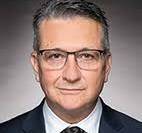Farmers frustrated with high priced fertilizer have bypassed their local dealers to buy shiploads of urea fertilizer direct from Russia at half the cost.
Thirty-two farmers and 42 Hutterite colonies from Alberta and Saskatchewan have signed contracts for enough fertilizer to fill one ship with 25,000 tonnes of 46-0-0 granular fertilizer for $450 a tonne.
Farmers are expected to order enough fertilizer to soon fill a second ship.
Depending on the American dollar, the final price delivered to local rail sidings is expected to be $400 to $450 a tonne, said Bill Sanger, with EcoChem Canada, which is organizing the shipments.
Read Also

Going beyond “Resistant” on crop seed labels
Variety resistance is getting more specific on crop disease pathogens, but that information must be conveyed in a way that actually helps producers make rotation decisions.
“It’s time things should be done a little bit different,” he said.
The farmers and colonies are members of Farmers in Progress, a not-for-profit company started by central Alberta Hutterite colonies frustrated by the high price of nitrogen fertilizer.
Mike Tschetter, farm manager with the Camrose Colony, said with thousands of acres of land to seed, the colonies couldn’t afford to farm with urea fertilizer hitting a high of almost $900 a tonne.
The group asked Sanger, a fertilizer and seed dealer from Delia, Alta., to help them find cheaper fertilizer.
“With that, the needle was threaded,” Tschetter said.
The Hutterite colonies believed other farmers would also welcome the opportunity to buy cheaper fertilizer and have held a series of meetings across Alberta to talk about the project.
“With the farmers, we stand together. When colonies and farmers work together, we have a strong foothold,” said Tschetter, who believes such co-operation is an important milestone.
“It looks like it’s going to fly.”
Sanger said the first ship is expected to leave the port of Perm, Russia, at the beginning of December and unload at Montreal before Christmas.
Depending on rail schedules, the fertilizer will arrive at Canadian National Railway’s unloading facility in Edmonton and Canadian Pacific Railway’s main yards in Calgary by the end of December and be redirected to rail sidings in Alberta and Saskatchewan.
Sanger said Farmers in Progress has contracted to buy 150,000 tonnes of urea fertilizer over 12 months and has an option to buy another 150,000 tonnes the following year at the same price.
Sanger said the group is buying the fertilizer from a major Russian oil company.
“You can expect fertilizer as good or better than you get from your local dealer.”
Money for the fertilizer will be held in trust until the ship arrives at Montreal.
Peter Entz, president and chief executive officer of Farmers in Progress, said the group expect no problems filling orders and getting the first two loads of fertilizer to the Prairies before seeding time.
A third ship might not arrive before seeding because winter weather in Russia and Canada may delay loading and unloading of the ships and rail cars.
Sanger said once details are worked out to get the urea fertilizer to the Prairies, he will explore ways to find cheaper phosphorus and glyphosate.
Henry Michielsen, a farmer and chemical dealer with Meadowland AgChem in Castor, Alta., has booked and paid for delivery of 90 tonnes of urea, the equivalent of one rail car, which is the minimum order.
“Too many people are sitting on the fence. I’d like to see it get going so farmers can have a better bottom line,” he said Nov. 11 while attending a Farmers in Progress meeting in Camrose.
Larry Renschler of Castor, Alta., said he came to get more details.
“What the dealers are quoting us, we can’t afford to put out that kind of money. This sounds like maybe a guy can farm again.”
Robin Cole of Coronation, Alta., said he can’t afford to buy expensive fertilizer when a good crop isn’t a sure thing.
He said he used 77 tonnes of urea fertilizer last year but plans to buy a 90 tonne rail car load.
“I’ll make it work,” said Cole, who doesn’t worry that the project sounds too good to be true. “I think Hutterites are good, decent people and if they’re doing it … and they have to do it, I think it’s a good idea.”
Farmers in Progress chief financial officer George Hofer of the Erskine Colony near Stettler, Alta., said his colony joined the group because it was frustrated with high fertilizer prices. Last year, it bought fertilizer through Farmers of North America, but couldn’t pin a firm price down from FNA this year.
“We phoned three times and they explained the market was too wild to set a price. To me they were playing some sort of game,” said Hofer.
Dan Bunbury of Galahad, Alta., said the biggest hurdle will be persuading farmers to work together for more than one year and keep the project going.
“It’s going to be a monumental task to get this off the ground. Once some train cars come in and farmers start to ask questions, you’ll be flooded with cheques.”
Bunbury said he bought fertilizer from Russia through Farmers of North America last year and it was of good quality.
“I don’t think quality is a concern.”
Brent McIndoe with Andrukow Group Solutions, a crop input dealer in Camrose, said it’s difficult to say how the urea shipments will impact local fertilizer dealers.
“I’ve heard about it, but until I see the product, I’ve got to believe it’s not going to happen,” he said.
“It has the potential to affect us,” said McIndoe, who added that the Farmers in Progress meeting in Camrose has been the talk of coffee shops. At half price, it’s an option many farmers can’t ignore.
“At $900 a tonne or $1,000 a tonne, urea is way too much,” he said.
The McIndoe’s fertilizer network pre-bought fertilizer at higher prices than the $400 to $450 offered by Farmers in Progress. Traditionally, urea fertilizer is cheapest in the summer and fall, but not this year, when it looked as if the price would surpass $1,000 a tonne.
Many prairie dealers and farmers bought fertilizer at the higher price and are now wondering what will happen if urea takes a sudden wholesale drop.
McIndoe said some farmers contemplating buying fertilizer through Farmers in Progress have asked if it could be blended at their facility. Few farmers are equipped to evenly blend the other nutrient requirements into the urea fertilizer for seeding.
“It’s a tough question to answer. Quality is always an issue. If it’s poor quality stuff, I will not put it through the system.”
McIndoe said he’s counting on years of good customer relations to stop an exodus of farmers bypassing local fertilizer dealers and instead writing cheques to people who promise a better deal.
“A lot of the clients I deal with are not necessarily willing to go out onto a limb and deal with someone who just happened to hold a meeting in Camrose one day.”















